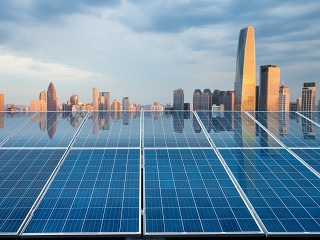This article originally appeared on the website iTechPost on August 12, 2021, under the title Green Development LLC Discusses Corporate Demand for Renewable Energy.
Leading scientists and public supporters have long touted the damaging consequences of fossil fuels on the environment, but getting renewable energy on the radar of corporate responsibility officials has been an ongoing concern. Many organizations are now recognizing the opportunity to capitalize on economic incentives and good karma points with the public by becoming carbon-neutral and are driving powerful changes within the industry as they do so. Green Development LLC, a well-known clean energy provider in Rhode Island since its founding in 2009, discusses evidence for a shifting corporate perspective towards renewable energy investments, their motivations, and what the future holds for this sector.
The Top 10 Corporate Green Energy Buyers of 2020
Who’s buying? The top 10 corporate green energy buyers of 2020 were, in descending order, Amazon, Google, Verizon, McDonald’s, Facebook, General Motors, Nucor, Evraz North America, Lowe’s, and Nestle. We know what you’re thinking: McDonald’s?! It’s true: our Egg McMuffins will have 36% more carbon-free restaurants and offices by 2030, thanks to the company’s investments in wind and solar farms.
Solar panels and wind farms are the primary mediums by which companies are reducing their carbon footprints. These areas have seen significant technological advances over the last decade that make them affordable and readily available to make changes on shorter timescales. These changes were spurred, at least in part, by the 2015 Paris Agreement, which legally bound 196 countries to lower their greenhouse gas emissions by 2050. Green Development and other renewable energy companies are working on expanding public awareness of renewable energy benefits and how both the government and private sectors influence the energy industry.
How the Titans of Tech are Taking on Renewable Energy
The Big Five-the five largest tech giants, namely Google, Apple, Facebook, Amazon, and Microsoft- have long been fueled by (mostly) friendly competitive rivalry, and corporate environmental responsibility is no exception. Their investments in wind and solar power mean huge gains for the green technology industry that will set the trend for other corporations to follow suit and make these technologies even more affordable for smaller businesses and consumers.
Google is the largest annual corporate producer of renewable energy in the world. With a focus on solar and wind power, Google has matched 100% of its global energy consumption with renewable energy purchases since 2017 and plans to operate on completely carbon-free energy by 2030.
Apple
Not only have Apple retail stores, offices, and data centers been completely powered by clean energy since 2018, but it’s also making the push to shift its manufacturing partners around the world to do the same-it’s no coincidence that this goal is also set for 2030.
Facebook has reached net-zero emissions for its global operations in 2020 and plans to do the same for its value chain by, you guessed it, 2030.
Microsoft
Not only has Microsoft pledged to become carbon negative by 2030: by 2050, the company plans to remove all the carbon it has emitted directly or through electrical consumption since its founding in 1975.
Amazon
A bit behind its counterparts, Amazon intends to be fully powered by renewable energy by 2025 and reach net zero carbon by 2040. That being said, Amazon was the number one U.S. corporate buyer of renewable energy in 2020.
Looking Ahead
The progress that green technology has made in recent years provides an optimistic outlook for further growth in this market. The price to build new onshore wind power plants decreased by 38% between 2010 and 2018-compared to the 2% drop in price to build conventional natural gas power plants. Solar panels are now 20 times more efficient at about one-tenth of the 2010 price.
This increased efficiency combined with lower installation prices enables huge financial incentives to both large- and small-scale businesses by allowing them to get off the traditional power grid’s peak hour charges-the biggest financial sinkhole for electrical utility costs.
Tax incentives for corporate energy-efficiency upgrades are also a source of economic motivation.
Financial reasons aside, “going green” is a slam-dunk for organizations in terms of positive press and boosting public opinion, which works to help companies achieve their bottom line. A 2015 survey reported that 66% of consumers, and 77% of Millennial consumers, are willing to pay more for products from sustainable sources.
Public approval of corporations making the shift to renewable resources is a major reason why we can expect these trends to continue. The high demand for a carbon-neutral world-and efficient, cost-effective renewable energy resources to achieve this goal-will continue to drive technological advances that will make clean energy more affordable for corporations, small businesses, and consumers.

